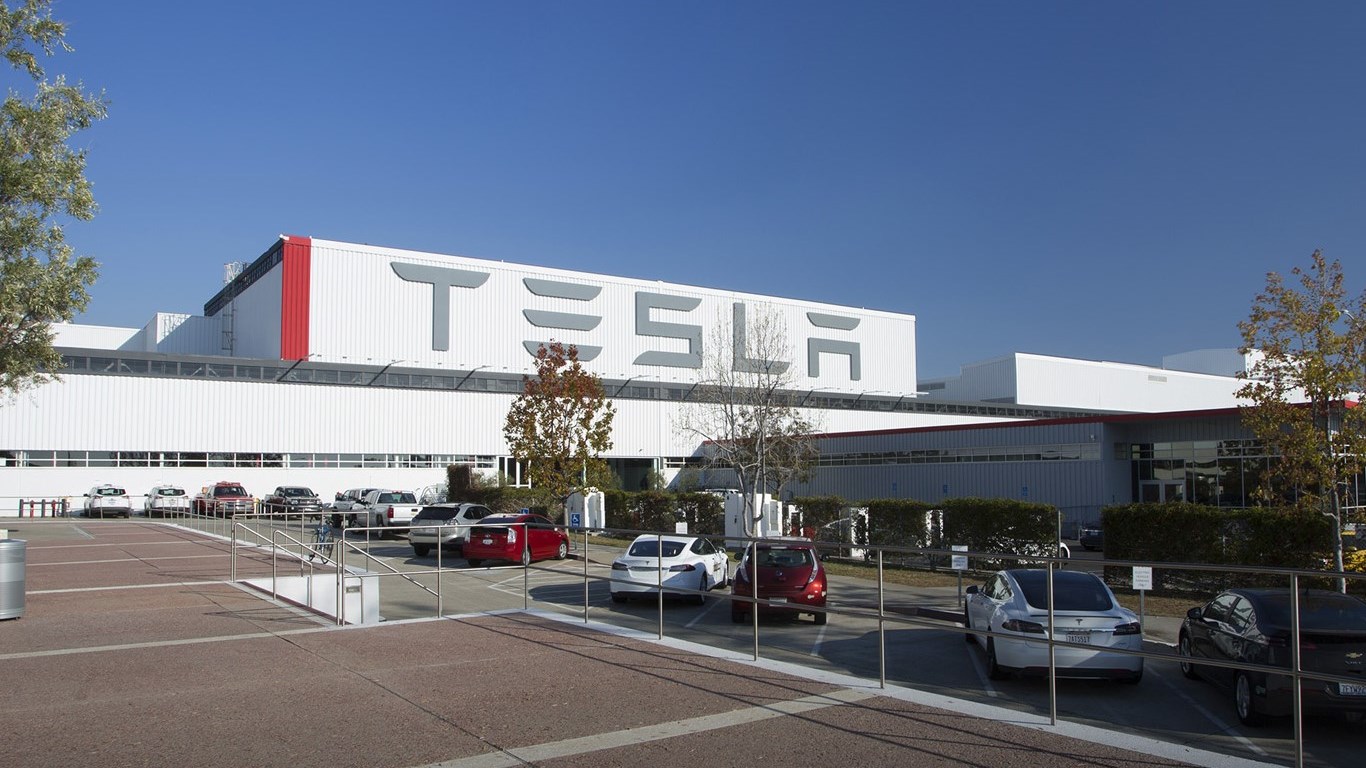
In a civil suit filed Saturday in the U.S. District Court in San Francisco, Tesla Inc. (NASDAQ: TSLA) sued Alameda County, seeking relief from a county order that designates the company as a nonessential business and one that must remain closed under the May 4 order from Governor Gavin Newsom that allows some state businesses to resume operations.
Fremont, the Alameda county city where Tesla’s U.S. auto assembly plant is located, had to force CEO Elon Musk and the company to cease operations when the country ordered strict stay-at-home rules to help stem the outbreak of COVID-19.
Tesla’s argument is that the company met Newsom’s March criterion of being one of 16 federally designated “critical infrastructure” business sectors and should be allowed to keep operating. The company claims that Newsom’s order was “not a state-level baseline inviting county innovation above and beyond a minimum; this is an order that certain essential businesses shall be permitted to remain open statewide to provide essential goods and services to all Californians.”
Alameda County, the complaint continues, “arrogated to itself the power to force closure of businesses that the state government had ordered could remain open because they are federally-defined ‘critical infrastructure’ serving vital security, safety, or economic needs of Californians.”
Tesla has more to say about how the country violated the 14th Amendment to the U.S. Constitution, which provides for equal protection under the law.
It’s not unreasonable to ask why Tesla chose California in the first place as a manufacturing location. After all, General Motors Co. (NYSE: GM) had operated the plant for 20 years, before shutting it down in 1982, and then GM and Toyota Motor Corp. (NYSE: TM) joint manufacturing venture, New United Motor Manufacturing, operated the plant from 1984 to 2010.
When the plant was closed, one of the proposals being floated for the location was a new ballpark for the Oakland A’s. Instead, new-kid-on-the-block Tesla bought the factory for $42 million in 2010. The price was a bargain considering, a new auto assembly plant could cost up to $1 billion. Abandoned auto plants are not exactly thick on the ground. Tesla currently employs about 10,000 people at the Fremont site.
So, will Musk and Tesla make good on their threat to move? In a Saturday announcement, the company said it had “no choice” but to take legal action to “ensure that Tesla and its employees can get back to work.” The county official who has the authority to make the decision, “has not returned [Tesla’s] calls or emails.” Thus, the lawsuit.
Tesla’s shares traded down about 0.5% at $815.74 in the mid-morning Monday. The stock’s 52-week range is $176.99 to $968.99, and the consensus price target is $532.88.
It’s Your Money, Your Future—Own It (sponsor)
Are you ahead, or behind on retirement? For families with more than $500,000 saved for retirement, finding a financial advisor who puts your interest first can be the difference, and today it’s easier than ever. SmartAsset’s free tool matches you with up to three fiduciary financial advisors who serve your area in minutes. Each advisor has been carefully vetted and must act in your best interests. Start your search now.
If you’ve saved and built a substantial nest egg for you and your family, don’t delay; get started right here and help your retirement dreams become a retirement reality.
Thank you for reading! Have some feedback for us?
Contact the 24/7 Wall St. editorial team.
 24/7 Wall St.
24/7 Wall St.



